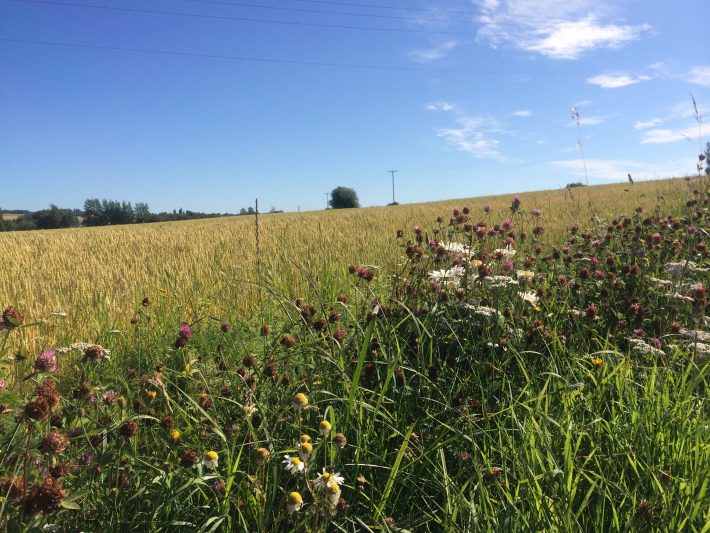Finding the Common Ground
Brexit is going to influence many aspects of life in the UK, few more so than farming and the environment.

The Defra Secretary of State, Michael Gove, has surprised and delighted conservationists by supporting many of their cherished aspirations; his speech in July 2017 was even described as ‘brilliant, quite brilliant’ by a hardened ornithological blogger. Defra followed up in January 2018 with publication of their long-awaited 25 year plan for the environment. This confirms Defra’s high environmental aspirations although, as the BES points out in their summary of the 25 year plan – it lacks legislative clout.
Meanwhile farmers and environmentalists are eagerly awaiting Defra’s next publication, due this spring – the command paper on agriculture which will presage a new Agriculture Bill. This will be needed to replace the EU Common Agricultural Policy which successive UK governments have criticised for expensively supporting inefficient farmers (primarily elsewhere in Europe) and doing too little to encourage better environmental practice. Brexit does indeed offer a huge opportunity to reset policy and practice.
Anticipating these developments, the BES Agricultural Ecology Group convened a workshop in December 2017, drawing together ecologists and agriculturalists, to find out how much agreement there is on the way ahead. The answer was – a lot. And from that meeting we have produced a workshop report: Finding the Common Ground.
The Key Message
The headline goal, agreed by all, is that:
There should be an agro-ecological approach to food production including biodiversity conservation. This should maintain land that is productive, rich in wildlife, culturally rich and accessible for the enjoyment of wider society without compromising the ability of future generations to meet their own needs.
To reach this goal there was agreement that a focus on the condition of our soil will be vital and that impacts on air and water must continue to be reduced. But implicit in an agro-ecological approach is also a recognition that biodiversity, including within the soil, is an integral component of sustainable food production, not a bolt-on.
We agreed on many of the levers that need to be used and a common theme of many of them was engagement – of the public with the origin of the food they eat and the environment that supports it, of farmers with that public, and of delivery bodies acting for government with both farmers and the public. There was also a consensus that there needs to be a stronger focus on learning quickly from experience – monitoring of delivery and outcomes with results transparently available, research to test novel ideas and solve problems, and support for farmer learning and co-operation.
We think these proposals are pushing at a door which is already ajar – many farmers are already managing nutrients and pesticides more carefully, paying more attention to soil structure, making better use of manures, beginning to question and change intensive continuous-cropping systems and possibly reintroducing grazing livestock. And we hope that our suggestions may help in formulating a policy which encourages more land managers in this direction and adds some clout to the environmental vision.
Next steps
The BES Brexit Policy Working Group is concentrating on producing a Sustainable Land Management briefing and our Finding the Common Ground report is a key piece of work feeding into the delivery of this work.
Like what we stand for?
Support our mission and help develop the next generation of ecologists by donating to the British Ecological Society.